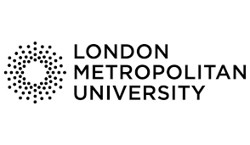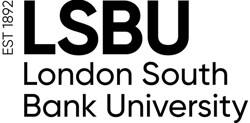Level 3 Extended Certificate in Environmental Sustainability
BackExam board: Edexcel
What is your course about?
Environmental Sustainability is a cross-curricular subject combining elements of business, science and geography. The sustainability sector is one of the fastest growing in the UK and there is a demand for fresh, innovative thinkers in the industry. This course is designed to introduce learners to the various elements of sustainability. It helps prepare them for jobs not just in the sustainability sector, but teaches the importance of having knowledge and awareness of sustainability that can be passed on to others in the community.
Duration of course
BTEC Level 3 Certificate in Environmental Sustainability (1 year)
BTEC Level 3 Subsidiary Diploma in Environmental Sustainability (2 years)
What topics will be studied?
Unit 1: Understand the principles of sustainable development
This unit focuses on the core themes and issues of sustainable development. The unit raises awareness of responsibility and citizenship and the requirement to respect and value the diversity of life. You will gain an awareness of what is being done globally, nationally and locally to achieve sustainability and how industry can play a role in achieving these goals.
Unit 2: Sustainable communities
The aim of this unit is to enable learners to gain an understanding of communities and the importance of planning an addressing economic, environmental and social issues. Learners will also gain skills in collating community resources and accessing support to implement sustainable measures within a community.
Unit 3: Science for environmental technicians
The aim of this unit is to enable learners to understand the essential principles and processes which underpin an environmental worker’s understanding of the Earth, its natural forces and the effects of plants and animals on the environment. Learners will develop knowledge related to atmospheric changes, processes involved in water cycles and maintaining environmental balance. They will investigate soil and rock processes and the management of materials.
Unit 4: Energy management
This unit enables learners to gain a knowledge of energy management legislation and international agreements, and the need to improve energy efficiencies to reduce carbon emissions. Learners will develop skills and techniques in planning and conducting an energy management audit and will also gain an understanding of how to monitor and target energy savings.
Unit 20: Understanding coastal management
The aim of this unit is to provide learners with an understanding of the processes affecting the coastal zone and the management of coastal habitats.
Unit 26: Sustainable transport
This unit enables learners to understand the economic, environmental and social impact of current transportation systems, and to explore more sustainable alternatives whilst maintaining effective services. Learners will also develop skills in identifying improvements to sustainability for leisure travel.
What can I do to prepare myself to study this subject?
To prepare to study Environmental Sustainability, you should keep up-to-date with the news by accessing a variety of different sources.
Where can this lead me?
There are a range of degree course progression routes that follow on from this course which includes Environmental Science, Geography and Business amongst others. Career opportunities include:
• Corporate social responsibility
• Climate science
• Sustainability officers
• Flood risk assessors
• Environmental impact assessors
• Urban planners
• Conservationists
• Environmental law
What are the enrichment opportunities as part of this subject?
There will include a visit to study sustainable coastal management. There will also be visits to local businesses and to the Olympic Park to focus on sustainable development of the site.
Entry Requirements:
Total GCSE Score of 30 with English Language and Maths (4/5).

















